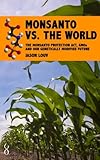When the US was initially up in arms over the use of chemical weapons in Syria, various commentators pointed out the hypocrisy of the stance given Washington’s track record vis-à-vis such weaponry.
That record includes, among other things, the unleashing of depleted uranium and white phosphorus on Iraq, permitting Israel to use white phosphorus on Gaza, and—a bit earlier on the timeline—dousing Vietnam with the lethal defoliant Agent Orange.
According to a 2011 Al Jazeera documentary, this last substance was responsible for “killing hundreds of thousands and causing dreadful diseases and birth defects in subsequent generations.” Last year, the BBC reported that “[t]here are claims that thousands of [Vietnamese] children continue to be born with horrific facial deformities due to the 20 million gallons of Agent Orange chemical sprayed by the United States.”
The legacy of the American military’s Operation Ranch Hand—the cutely-named herbicide warfare program—is thanks in part to the US biotech corporation Monsanto, formerly Agent Orange’s manufacturer.
It’s useful to recall the history of Operation Ranch Hand and its consequences for Southeast Asia in light of Monsanto’s current efforts to market itself as a “sustainable agriculture company” committed to ameliorating the human condition.
The Good Life
Of course, Monsanto is still in the chemical-pushing business. Its bestselling herbicide, Roundup, is advertised as safe for everything except weeds despite its harmful effects on plants, animals, and people.
In Argentina, kingdom of genetically modified soya, the application of Roundup to vast sections of territory has coincided with a rise in cancer rates, birth malformations, and miscarriages. In India, meanwhile, nearly 300,000 farmers have committed suicide since 1995 after being driven into insuperable debt by neoliberal economic policies, which have led to wholesale takeovers of Indian farmland by Monsanto's Bacillus thuringiensis (Bt) cotton.
Although promising to boost crop yields and defy pests, Bt cotton did quite the opposite, while the price of cottonseeds soared. As physicist and author Vandana Shiva pointed out in 2009, Indian farmers were thus far “using thirteen times more pesticides than they were using prior to introduction of Bt-cotton.”
The fact that many farmers have killed themselves by ingesting these pesticides is not just ironic, but suggests that certain Monsanto products are “chemical weapons” in a very real sense.
And yet the corporation continues to hawk its alleged commitment to “improving farmers’ lives”—propaganda that would presumably be less effective were Monsanto deprived of the US government favors it has traditionally enjoyed.
Consider, for example, the lead paragraph of a Reuters article dated May 14, 2013: “U.S. taxpayers are footing the bill for overseas lobbying that promotes controversial biotech crops developed by U.S.-based Monsanto Co and other seed makers, a report issued on Tuesday said.”
This particular report was based on WikiLeaked cables revealing the extent of State Department machinations on behalf of agribusiness. A 2009 cable from the US Ambassador to the Holy See ends with a pledge to “continue to lobby the Vatican to speak up in favor of GMOs, in the hope that a louder voice in Rome will encourage individual Church leaders elsewhere to reconsider their critical views.”
But that wasn’t all. US officials took a decidedly more forceful approach with their allies in Paris when the government moved to ban MON18—a pesticide-resistant seed variety—from use within its territory. Writing back to Washington in a cable later published by WikiLeaks, American Ambassador Craig Stapleton advised his superiors to launch an old-fashioned trade war in retaliation.
“This is not just a bilateral concern,” Stapleton wrote. “France will play a leading role in renewed European consideration of the acceptance of agricultural biotechnology and its approach toward environmental regulation more generally…Our contacts have made clear that they will seek to expand French national policy to a EU-wide level and they believe that they are in the vanguard of European public opinion in turning back GMO’s.”
Monsanto, Superweed
The politico-corporate incest that characterizes US society naturally contaminates the juridical sphere as well. Reuters recently noted that the Supreme Court had “declined to hear an appeal by organic farmers and others seeking to require Monsanto Co to promise never to sue farmers if their fields inadvertently have plants containing the company's patented genetically modified traits”.
Given Monsanto’s history of turning to the courts and suing individuals for patent infringement when, for example, the wind blows Monsanto seeds onto their farmland, the organic farmers’ concern is well-founded. From this kind of insanity, one can only conclude that Monsanto believes it can achieve “sustainable agriculture” by contaminating other people’s land and then making them pay for it.
As for other lucrative projects currently on the corporate itinerary, Monsanto has joined John Deere in a pioneering venture into the surveillance industry. Previous forays were outlined by Vanity Fair in 2008. “As interviews and reams of court documents reveal, Monsanto relies on a shadowy army of private investigators and agents in the American heartland to strike fear into farm country. They fan out into fields and farm towns, where they secretly videotape and photograph farmers, store owners, and co-ops; infiltrate community meetings; and gather information from informants about farming activities.”
Another deleterious effect of Monsanto’s operations in the United States is, of course, the epidemic growth of Roundup-resistant superweeds prompting farmers to seek ever more toxic solutions to keep their crops protected. The problem confronting farmers is frightening. According to an article from the Union of Concerned Scientists, “Some resistant weeds can grow eight feet tall and the tough stems damage farm equipment. Removing them by hand can be the only option, and an expensive one. These weeds steal nutrients from the crops, which reduces yields, overall productivity, and farmers’ profits.”
There is one thing superweeds are good for, however—and that’s as a metaphor for an out-of-control entity wreaking havoc across the earth. Indeed, the real epidemic is Monsanto itself.
Belén Fernández is the author of The Imperial Messenger: Thomas Friedman at Work, published by Verso. She is a contributing editor at Jacobin magazine.



